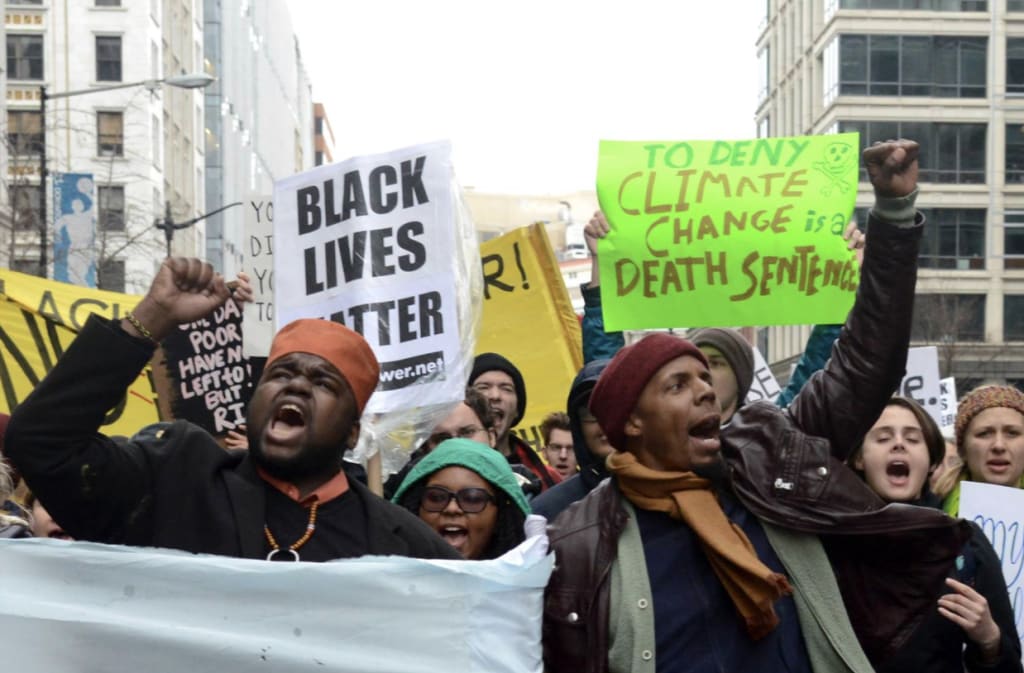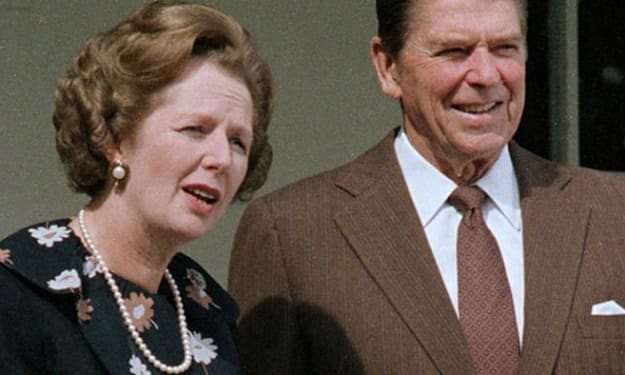"All Lives Matter" and the deep-rooted, misled, abhorrent nature of this sentiment
Understanding the reasons and misjudgements behind those who oppose the fight for racial equality

As a white person, a quote from author Sheri Faye Rosendahl resonates with me: “The only thing that should come after ‘I’m not racist but…’ is ‘but racism is so ingrained in my society and culture that on some level I definitely am and need to do my part to destroy the system of oppression that people like me have created and benefit from on the daily’ ”.
We need to understand why it’s vital we use our platforms, as white people, humbly and willing to learn, to seek racial justice. If anything, being part of an even higher position of privilege because of wealth and socioeconomic status should not push us further into our safe, comfortable, distant bubbles of inexperience, which we have found ourselves in due only to accident of birth. We need to first acknowledge our positions in this, and acknowledge just how much it has benefitted every aspect of our lives, and then harness this position of privilege and utilise our resources to collectively learn, educate and act accordingly.
It is difficult to cover even close to enough of the broad topics under the umbrella of racial inequality. One small article is no way near close to exhaustive in discussing race relations. However, in the wake of recent Black Lives Matter discussion and protests, this article looks to explore some of the surface arguments surrounding counter-protestors’ disagreements with what the movement stands for. In doing so, I equally want to acknowledge that there are many more much deeper, engrained social and political issues at hand. Here I am looking to simply explain why the statements and judgements promoted by those opposing the BLM movement are invalid. Members of the far-right; the EDL and alike, as well as unfortunately, members of our Government and other slightly more ‘moderate’ members of the right wing, have tried to find a lot of different reasons to back their aversion to BLM and those fighting for racial equality. However, a number of recurring themes have been particularly notable in the most recent debate. Despite the extremity of and offence behind these ideas, they have unfortunately been divisive enough to receive the type of mainstream media attention that serves to validate them. They are the sorts of misjudgements that are somehow taking up the time and space of public debate and so worrying in the fact that they provoke serious and sincere deliberation in the first place. Nonetheless, they are, and so the most productive response is to deconstruct the arguments and misinterpretations fuelling them, and to try to shed light on the deplorable, mistaken beliefs behind them:
Why we shouldn’t say “All Lives Matter”
One of these themes that has been re-ignited in the past months has been the obnoxious and misled response to the BLM movement in the form of the counter-phrase ‘All Lives Matter’. Supporting such a response is dangerous and risks an unnecessary and lazy avoidance of the uncomfortable issues at hand.
Of course all lives matter. No one in the realms of serious debate is questioning that. No one is saying “ONLY black lives matter”. As supporters of the racial equality movement, people are promoting and fostering the BLM phrase because both historically and presently, the idea that black lives are not equally as important as others - particularly white ones - dominates the political sphere both institutionally and socially, as well as psychologically and culturally.
Whiteness has always been the default template on which western social structure is based, (an example: https://elemental.medium.com/the-bizarre-and-racist-history-of-the- bmi-7d8dc2aa33bb) as if this is the biological and cultural ‘norm’; as if it is at the centre of human organisation, and anyone non-white is part of the periphery. Asserting that "All Lives Matter" reaffirms — or at best ignores — that reality. Of course every life is valuable, but not everyone’s life is in danger due to the colour of their skin.
I don’t believe every single cop is bad; many white people are not racist. But this is not the point. If someone in your own community, someone you share ancestry with, be it as close as a family member or just another white person out in public, has misunderstood something so fundamental to the history of our social framework, which provided the economic structure and capacity that allowed previous colonial powers to be as advanced as they are today, you might consider it your moral responsibility to help educate and show them these unfortunate realities, before they act on their misjudgements.
Defending those who take down statues in protest
Another of these themes has been the animosity towards the removal of public statues commemorating individuals with links to the Atlantic slave trade. Those who oppose this often claim that they do so on the basis of the supposed educational role these statues play in highlighting ands reminding the nation of its history. Statue-removal plays no role in erasing moments in history but rather deconstructs the public use of a notion which intrinsically serves to commemorate, praise and validate the actions of the figure in question. I think we need to question what statues have actually done, if anything, to contribute to the teaching of black history and the decolonisation of education thus far.
Britain is not just a nation rife in institutions and social structures plagued by racism; it was arguably the most significant architect of the social and economic structure which fosters and upholds overt racism in all its forms to this day. As a result it is a massive responsibility of both those in power today as well as white individuals and educators to learn about, teach and acknowledge our past and the practices of our ancestors, which have devastating reverberations today. I don’t believe that use of statues - symbols of what a society values and deems positively influential - of slave traders and imperialist merchants, are a means to do so.
Likewise, when Churchill is commemorated he is celebrated for everything he stood for— imperialism, oppression and deep hatred of the working class. Yes, Churchill is credited with being the main inspiration in the UK to continue the fight against Nazi Germany; he is admired for the ability he had to make challenging political decisions and express remarkable courage. However the atrocities that he and his government were involved with must equally be recognised and not isolated from the judgement the British public make from which they warrant their approval of him: His oversight of Gandhi’s arrest and imprisonment; his decision to divert vital resources away from India to supply the war effort, sparking the Bengal famine; and his subsequent blaming of Indian civilians for this - “they’re beastly people with a beastly religion”. Furthermore, his planned use of chemical weapons against the Kurds; his support for eugenics; and his preference for racial hierarchy are among a still lengthier list of his brutal pursuits.
The symbolic intent of a statue does not make the distinction between the different things the individual did. In contrast, as a more appropriate example of a way to recognise the significance of our history, a museum dedicated to detailed, non-selective education allows us to properly study and analyse given historical events/individuals. It allows us to do this without the simultaneous gesture of praising those most involved in any associated crimes and brutality. Churchill’s role in defeating Hitler has somewhat undermined the significance of his imperialist commitment and business as a colonial figurehead. This is evident in the manifestation of his almost all-positive portrayal in both British classrooms and in public presentation of the country’s history.
We don’t focus on the stories of the slave traders or imperialist figures that these statues serve to commemorate because Britain’s wealth today is a direct result of the slave trade and the exploitative, inhumane operations of these figures. Britain wouldn’t be where it is today without the wealth that was accrued from its role in these practices. This is not something that political leaders today wish to expose to children learning history, because it calls into question the social structure currently legitimising their positions of wealth and power. It is contradictory to Britain’s false sense of progressivism and the collective public and political attitude stemming from the belief that it led the abolition of slavery. How do we deal with the way the world is today, at such a fundamental level when we are taught that it is a result of the most extreme exploitation and suffering of black and brown lives, which continues in various forms to this day? It raises very relevant questions about the deep necessity for massive redistribution of wealth, arguably in addition to reparations of some form. As Marx theorized said in 1846 in The Poverty of Philosophy:“Direct slavery is as much the pivot upon which our present-day industrialism turns, as are machinery, credit, etc. Without slavery there would be no cotton, without cotton there would be no modern industry. It is slavery that has given value to the colonies, it is the colonies that have created world trade, and world trade is the necessary condition for large-scale machine industry. Slavery is therefore an economic category of paramount importance”.
Taking down a statue is not violent, nor does it harm any institution or any individual. Call it ‘vandalism’, continue to minimise and reduce the actions of these protests framing this as ‘thuggery’, but know that upholding the physical and public admiration of racist historical figures - slave traders, merchants and colonialist leaders alike - is not the way to promote change. Statue removal as a form of harmless, direct civil action is what is contributing to the current promotion of thought, critical analysis and historical exploration.
In conclusion I would say that we as white people have a lot of responsibility; to recognise that we all response to a certain degree of unconscious bias that has been fixed into our understandings of social interaction, as well as our sense of logic and reasoning; to deconstruct white supremacy; to educate ourselves: It is not the role of black people to undertake the emotional labour in educating white people about racism, it is a problem of white people and this must be recognised before constructive progress is made. It is not enough to simply not want racism, we must all take active and continuous steps towards understanding and endorsing the need for change.






Comments
There are no comments for this story
Be the first to respond and start the conversation.